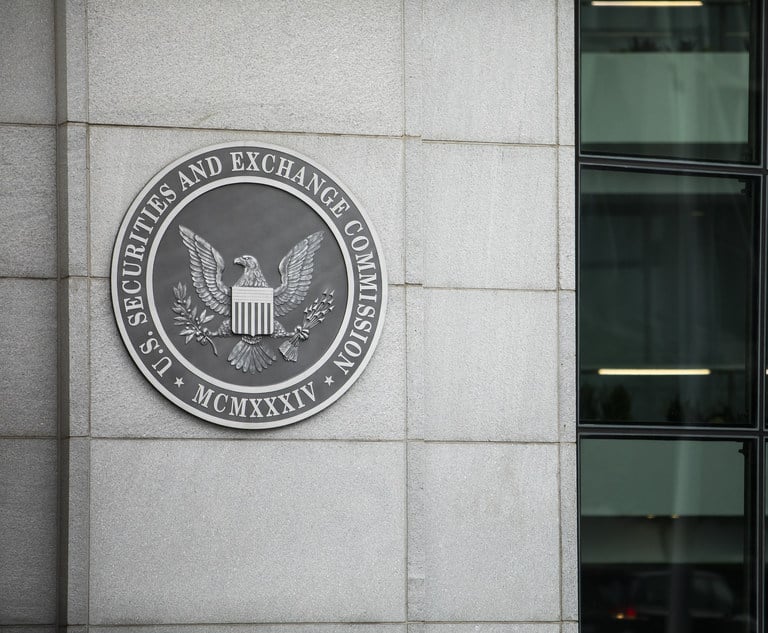Shareholder activism rebounded in 2021 but activists and defense advisers alike are bracing for regulatory changes that are likely to change how they do business for years to come.
There were 220 campaigns launched against target companies with a market value of more than $1 billion by activist investors this year through Dec. 28, according to data compiled by Bloomberg. That was up about 20% from the 183 campaigns launched in 2020 but still below the 238 launched in 2019 prior to the coronavirus pandemic.
About 75% of the campaigns launched in 2021 were led by first-time or occasional activists, continuing a shift toward such investors taking a more active approach, said Avinash Mehrotra, Goldman Sachs Group Inc.’s global head of activism defense and shareholder advisory. It’s no longer just traditional big-name investors like Carl Icahn, Elliott Investment Management or Starboard Value pushing for changes at the companies they’re invested in.
‘New Normal’
“The new normal is that we’re having more engaged shareholders across the spectrum,” Mehrotra said. “We have long-only investors who are now regularly engaging with management on topics like strategy, portfolio mix, operating performance and returns.”
That will likely lead to more aggressive and public tactics by traditional activists as they try to differentiate themselves from the newcomers, he said. Goldman Sachs was the leading financial adviser in activist situations in 2021, according to the Bloomberg data.
The campaigns this year have demonstrated that activists are willing to use a “Swiss army knife” approach in their push for change, said Andrew Freedman, co-chair of the shareholder activism practice at the law firm Olshan Frome Wolosky LLP. He said the targets encompass newly public companies, those that are trying to be acquired or to grow through acquisitions, and businesses perceived to be lagging on environmental, social and governance issues.
No Part Immune
“We’re now at the point where shareholder activism touches upon all aspects of a public company’s life cycle,” said Freedman, whose firm was the leading legal adviser for shareholder activists in 2021. “There’s no part of a public company’s decision making and policy making that is immune from the grips of shareholder activism.”
Amy Lissauer, Bank of America Corp.’s global head of activism and raid defense advisory, said the number of campaigns launched in 2021 isn’t indicative of how busy the proxy season was or how busy 2022 will be. There has been a significant uptick in contentious situations being resolved behind closed doors, she said.
“It’s going to be a busy 2022. It was a busy 2021,” Lissauer said. “The data doesn’t show the whole picture because so much of what we work on is happening now behind the scenes.”
Game Changer
The rules of the game are about to change, though.
The U.S. Securities and Exchange Commission plans to implement changes in September that will move proxy fights to a so-called universal card. That means shareholders will have one ballot to vote for all the director nominees put forth by both the company and the activists, instead of using two different cards as they do now.
Greg Taxin, managing director at Spotlight Advisors, said he believes the change will lead to activist investors focusing more on the quality of their director candidates and fewer fights for board control. That means activists will likely see more one-seat victories, he said.
“The universal proxy means control fights are basically dead,” Taxin said. “The biggest impact of the universal proxy card is that the level of change coming out of proxy contest will more accurately reflect the views of the shareholders.”
The SEC also has proposed rules that could force activists to disclose an active stake in a company sooner than the 10 days required when their holdings surpass 5%. The commission is seeking to restrict the use of complex derivatives to secretly build stakes in public companies.
Exxon Victory
Perhaps the most prominent victory in 2021 by an activist was Engine No. 1’s victory over Exxon Mobil Corp. The first-time activist managed to win three seats on the board of the oil and gas giant despite owning only a 0.02% stake in the company.
Eleazer Klein, co-head of the global shareholder activism group at law firm Schulte Roth & Zabel, represented Engine No. 1 in that fight. He said he expects ESG issues to figure more prominently in activist campaigns. While environmental issues were the larger focus this year, social concerns are coming to the fore as well.
“ESG has gotten a larger play than it has in other years,” Klein said. “The ‘S’ part is not far behind. It’ll manifest in the same way it has on the climate side.”
What’s important to society will have an impact on companies, he said.
“A few years ago, a lot of people were debating about how the ‘E’ part was going to play out from a financial perspective. You see it does work because what’s important to the world does have an impact.”
NOT FOR REPRINT
© 2024 ALM Global, LLC, All Rights Reserved. Request academic re-use from www.copyright.com. All other uses, submit a request to [email protected]. For more information visit Asset & Logo Licensing.


 Photo: Shutterstock.
Photo: Shutterstock.




